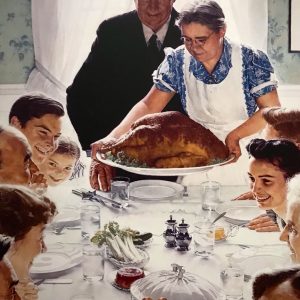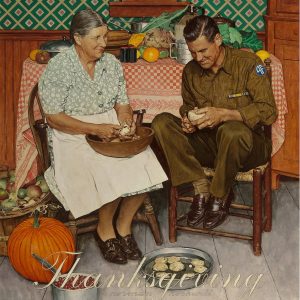Norman Rockwell
Showing all 2 results
Norman Percevel Rockwell (1894–1978) was an American painter and illustrator. In the US, his works have a popular interest due to his view of the country’s culture.
He is most famous for many paintings and illustrations much like everyday life he created for The Saturday Evening Post magazine, as well as the Willie Gillis series, Rosie the Riveter, The Problem We All Live With, Saying Grace, and the Four Freedoms series.
In his lifetime while he was alive, Rockwell produced more than 4,000 original works of his own. Most of his surviving works are in public collections all around the world today.
He was also commissioned to illustrate more than 40 books globally, including the all famous Tom Sawyer as well as portraits for the Presidents Eisenhower, Kennedy, Johnson, and Nixon, as well as those of foreign figures, including Gamal Abdel Nasser and Jawaharlal Nehru. His portrait subjects included Judy Garland and one of his last portraits was of Colonel Sanders in 1973.
The “Four Seasons” illustrations for Brown & Bigelow that were published for 17 years beginning in 1947 and reproduced in various styles and sizes since 1964.
He created artwork for advertisements for Coca-Cola, Jell-O, General Motors, Scott Tissue, and other companies.
Illustrations for booklets, catalogs, posters (particularly movie promotions), sheet music, stamps, playing cards, and murals (including “Yankee Doodle Dandy” and “God Bless the Hills”, which was completed in 1936 for the Nassau Inn in Princeton, New Jersey) rounded out Rockwell’s oeuvre as an illustrator.
Rockwell’s work was dismissed by serious art critics in his lifetime.
So many of his works appear overly sweet in the opinion of modern critics, which tend toward idealistic or sentimentalised portrayals of American life.
Consequently, Rockwell is not considered a “serious painter” by some contemporary artists, who regard his work as bourgeois and kitsch.
He is called an “illustrator” instead of an artist by some critics, a designation he did not mind, as that was what he called himself.


